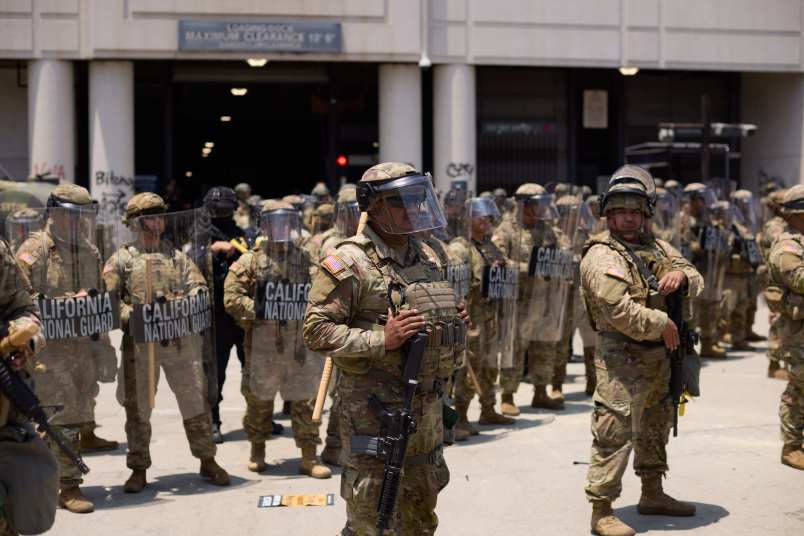National Guard troops are mobilized fairly frequently for domestic purposes, usually during natural disasters. Having them federalized isn’t that uncommon. But having them federalized over the objections of a state’s civil authorities is extremely uncommon and hasn’t happened in more than half a century. As this was unfolding over the weekend, I knew generally that this had last happened under LBJ as a part of enforcement of federal law during the Civil Rights Era. But I didn’t remember that the last time was specifically during the Selma-to-Montgomery March in March 1965. I was reminded of this this morning by a piece in NOTUS. This 2016 piece in Politico gives the specific details of how and why the federalization took place, which are interesting in themselves. A federal judge ruled that the march was protected under the First Amendment and that the state was responsible for ensuring its safety. Wallace refused to use state police power to do that, thus deliberately forcing Johnson’s hands (Johnson was pissed), figuring that he would gain politically if federal troops got into violent in encounters with anti-civil rights counter-protestors. As it happened, the larger spectacle was a key part of building momentum for the passage of the Voting Rights Act that August.
It’s easy to make too much of the ironies or contrasts history presents us with. But the contrast and ironies here are particularly potent. A crowning moment of the Civil Rights movement versus Trump’s intentionally inflammatory immigration raids on … Home Depots. (It gets somewhat lost in all the other high octane dimensions of this story that a raid on a Home Depot is literally an effort to arrest people who are eager to work and whose labor is in great demand. It’s about as far as you can get from just going after the bad guys, as the White House routinely claims.) But there’s a more specific point: all the federalizations during the Civil Rights Era were over the refusal of segregationist state governments to enforce federal law under court order. Trump’s argument is much different — and this is literally their argument, not one I’m imputing to them: It’s the right of the President to decide when a state government isn’t protecting or enforcing civil order to his liking and to intervene with federalized National Guard or the U.S. military to do it at the point of a bayonet. Beyond all of our correct fears about Trump’s budding autocracy, this is in a very direct sense an attack on the sovereignty of the people of California.
Many people have at least some background discomfort about invoking “states’ rights” or “state sovereignty,” given their historical usages in American history. That’s a big topic going forward as Trump and his movement increasingly use the powers of the federal government to go to war against blue states. But even in the context of the earlier history, the details here are critical to understand: it’s not just a matter of … well, civil rights are good and this isn’t. The U.S. government is built on a structure of dual sovereignties, with states generally operating at the local and state government level, and the federal government on the national level. Just where those lines of state and federal legal authority are marked has been a subject of ongoing debate for going on two centuries. Where state and federal law conflict, federal law is supreme. But as long as states (which for these purposes means state and local government) are operating within federal law, they are fully sovereign in their domain. And this isn’t “sovereign” in some airy textbook sense or perhaps the cringey way you might imagine it coming off the lips of a Boss Hogg-type figure out of the unreconstructed South. It’s the sovereign right of the people of California to self-government. It’s as simple as that. They elected a governor. Angelenos elected a mayor. They control the policing forces of the state and how they choose to manage what can only be called minor public disturbances, at best, are entirely questions for them to decide.
This is really of a piece with Trump’s brazen and unlawful drive to shutter congressional-created parts of the government, withhold funding appropriated by Congress. We talk rightly about the importance of following the law. But we should remember that the law is simply the codified expression of popular sovereignty operating through the mechanism created by the U.S. Constitution.
It’s all of a piece. In America, the people are sovereign. We have no kings.




